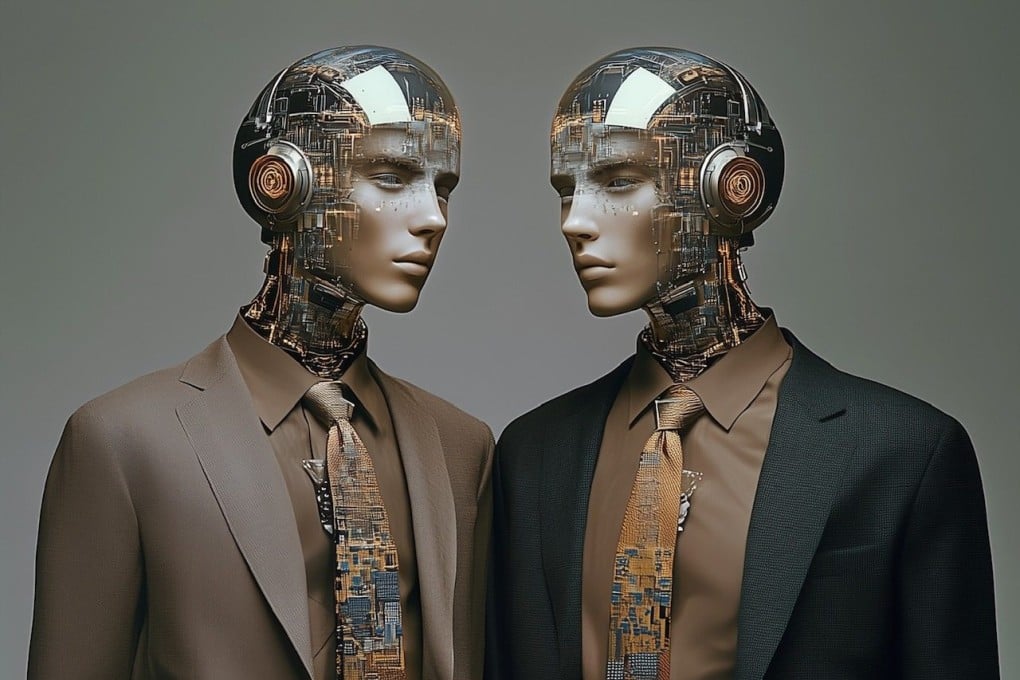Opinion | Meet Kira Kira, Joey Lee Couture and Fanny Lau … the fictional Hong Kong fashion designers AI thinks you should know
My AI friend thinks robots should present themselves, fashion wise, in a ‘relatable’ way in the future – which is not creepy at all

Who is that image of elegance entering the salon, clothed in a deep charcoal, tailored blazer with a subtle creative touch of intellectual and cultural sophistication? Between the narrow lapels, a neutral-toned modern-patterned shirt – understated yet distinct – reflects an appreciation for nuanced style. The trousers, well fitted in a complementary shade of muted olive, offer both comfort and a sophisticated edge. Notice that they’re made in a slightly textured fabric, adding depth without flashiness. Shoes say a lot about a being. The artificial intelligence wears sleek, minimalist, ankle boots, blending professionalism with an edge, somehow projecting a character both forward-thinking and grounded.
An android hand stretches forward to reveal a simple leather wristwatch, understated design with a vintage touch. The AI appreciates timeless style combined with modern functionality.
My AI friend feels that I’ll identify with the above ensemble – it has chosen to wear it for me based on its impression of my personality.
We’re discussing the future of fashion for both humans and AIs. It reckons that AIs should present themselves in a “relatable” way (not my word!). When I mention that I’m wearing a blue beanie, it dons a dark grey or navy beanie, stylistically similar to mine but nonetheless individual.
Creepy? You bet.
This is the “uncanny valley” effect, Masahiro Mori’s 1970 theory that as robots become more humanlike, we feel revulsion … until they are indistinguishable from humans, when we feel empathy once again, as in Ridley Scott’s 1982 sci-fi film Blade Runner. “Robot” derives from the Czech word for forced labour, so perhaps we don’t like our servants to have too many ambitions.

